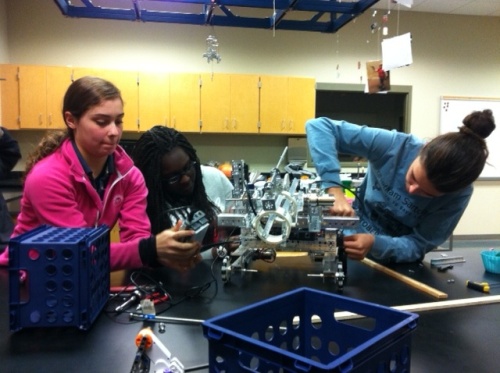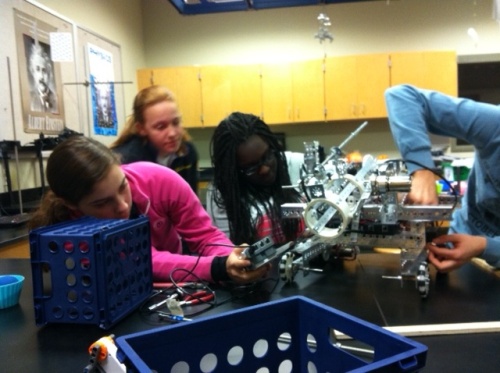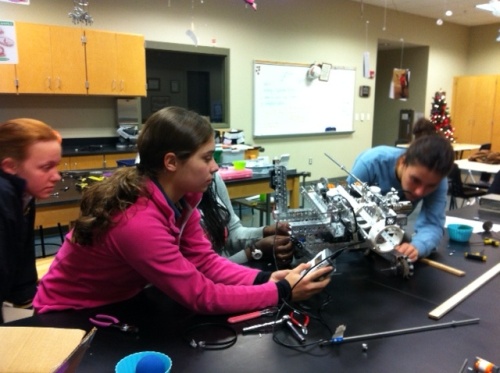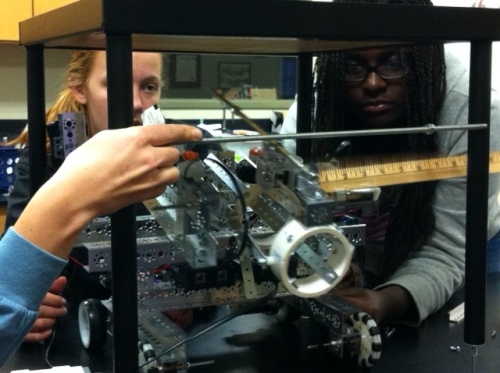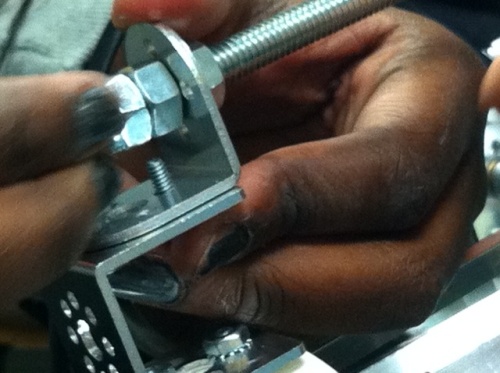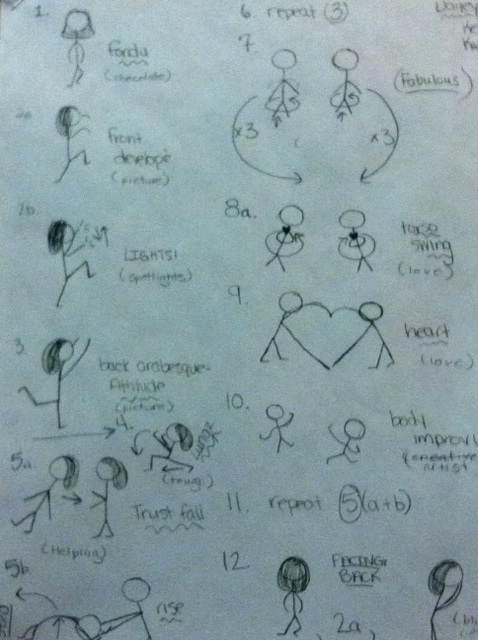By Martha Griswold
The beginning of the year has been a bit overwhelming when it comes to ideas about which to write, because, frankly, there are too many topics from which to choose. New school years always bring, well, newness. New students, students who return and who seem older and changed, new faculty members who jump right in…and this year in particular, we returned to a newly-renovated and 21st century-looking and feeling library which sees more use than ever, and to the news that we would spend part of this year searching for for a new head of school for the 2014-2015 school year. And we all have iPads, there is a very tall totem created by students in the middle of the Well, and when I run at night, I see garden beds which are helping a student conduct research on intentional vermiculture. I am rooting for those worms.
So, it had been tough to choose which of these to focus on — until recently.
A couple of years ago, a committee began formulating our iQuest program, an experiential learning adventure for which students and faculty make grant proposals based on internal motivation and a question to which they just have to find the answer. Last year, we saw the first generation of projects which ranged from community gardening, to a pilgrimage to Spain, make-up through chemistry, a study of architecture through Frank Lloyd Wright, and the study of veterinary dermatology, all projects culminating in a presentation of some sort for the school community. All fine, all impressive, and all reflecting the individuals who had created them.
In the first half of the semester, I have been blown away by two iQuest presentations that have left me speechless and believing all the more in the power of young women when left to their creativity, imagination, curiosity, and courage.
On September 26, Mary-Michael Robertson presented her 40-minute video on the research she had done on the physicist Cecilia Payne-Gaposchkin, interviewing the current head of the Harvard University Physics Department, a man who believes that Payne-Gaposchkin, the first head of the Harvard Physics Department, never received the recognition she deserved for her discoveries (Yup, she figured out that the sun is made of hydrogen, among other things.). Learning of Payne-Gaposchkin’s travails, Mary-Michael interviewed Chatham Hall alums who had gone into science-based fields. Never one to let a question or idea lie idle, Mary-Michael also interviewed several Harvard grad students who were pursued advanced degrees in science. The contrasts were striking, as was Mary-Michael’s comfort with all of these older (than she) scientists. They took her questions seriously and it was clear that Mary-Michael took all of their words to heart. Mary-Michael, as is the case with many other students, always impresses me with her steadfastness and determination to get at the crux of an issue and to probe until she has the answers not that she wants, but that she needs. Mary-Michael’s faculty sponsor was physics teacher Molly Thomas, whose enthusiasm for projects and activities that help girls who wish to pursue a career in science is equal to Mary-Michael’s desire to be a scientist (Molly, who recently earned her Masters in Physics Education, is currently pursuing STEM certification through a program with the On-Line School for Girls.). I think that when Mary-Michael’s video ended, those in “Dutch” knew that they had seen a fine film which conveyed important thoughts on what it means to be a female in what continues to be a male-dominated field — but also which underscored Mary-Michael’s curiosity (and the extent to which she would go to get answers) and courage. Find the link to the iQuest page and Mary-Michael’s video at
http://chathamhall.org/travel/iquest-opportunities.
The second iQuest presentation that took my breath away centered on a project designed by juniors Claire Gardner and Sofia Rose, with sponsorship by dance instructor Brittany Jackson. If I say that the
focus of the projectit — or them — justice. The girls, dancers in the CH program, wanted to experience ballet in Paris (so took lessons at the American Ballet Company), but also wanted to experiment with improvisation in different locations – creating site-specific movement and choreography for a variety of venues throughout Paris and its suburbs. Now, I do have an emotional tie to France, having studied and worked there for two years, one of those years in Paris, that that made witnessing the video they made of their dancing in Paris, more enjoyable and bittersweet for me, but that anyone who loves a convergence of creativity, beautiful music, dance, and, let’s face it, one of the choicest backdrops available, would be quite taken by this video — if the standing ovation was any indication.
But what struck me most (and this is pretty major because the convergence of the above-mentioned qualities has impressed me greatly), were the courage and composure that these two students and teacher manifested throughout the course of their trip to Paris. It took a lot of courage to take that first step an the Champs de Mars, asking two young musicians if they would play while Sofia and Claire created a dance against the canvas of the Eiffel Tower. Throughout the video, the three dancers captured the spirit of Paris, demonstrated a comfort in achieving their goal, and could not have improvised better dances for their selected sites. The joy that jumped (grand jetéd?) off of the screen and took over “Dutch” also received applause from passers-by in Paris (and the occasional “Pelouse interdite” police warnings — the French take good care of their grass! And as Sofia said, “So we waited for them to leave and jumped back onto the grass.”) The choice of well-researched music added to the ambiance and fun. Claire and Sofia’s video*, a work of art in and of itself, can be accessed from the iQuest page of the Chatham Hall Web site:
http://chathamhall.org/travel/iquest-opportunities.
Two very different iQuest projects in a short period of time — and each conveying the backbone, determination, desire to get at the root of a question about which these young women are passionate, and their own sorts of joy. These are girls who took risks, moved outside of comfort zones, and emerged with a better understanding of themselves, those around them, and the impact that pursuing their own questions can have on themselves and others. Since these two presentations, several girls have stopped by my office to inquire about applying for their own iQuests — today a newly enrolled student talked to me about something she had been thinking about for a long time — and seeing Claire and Sofia’s video spurred her on to ask her own questions.
Sometimes we have images that we want to expunge from our minds– and we can’t shake them. I rest easy knowing that the images that are sticking in my mind — images of strength, confidence, excitement, and the beauty of girls making their way in the world, will stick with me for a very long time.
*I hope. There have been some technical difficulties — check to page to see if it is there, and if it is, enjoy!
Martha A. Griswold, Academic Dean
Chatham Hall
800 Chatham Hall Circle
Chatham, VA 24531
434.432.5617
http://www.chathamhall.org




